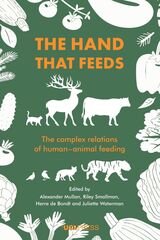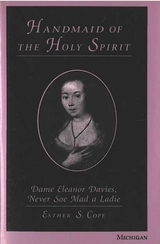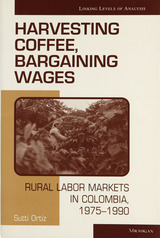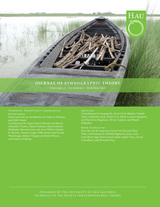3 books about 1899-1973
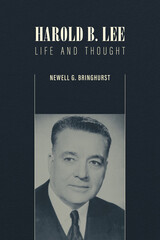
Harold B. Lee
Life and Thought
Newell G. Bringhurst
Signature Books, 2021
While Harold B. Lee served as president of the Church of Jesus Christ of Latter-day Saints for a mere one and half-years—among the shortest tenure of any church leader—his impact on the modern LDS Church remains among the most profound. Lee implemented the Church Welfare Program, which provided relief to suffering church members during the 1930s Great Depression and continues to impact the lives of church members today. As a high-ranking general authority from 1941 to 1973, he championed other innovations, the most important being Correlation. Lee acted in response to the church’s record growth and increased diversity to consolidate and streamline churchwide instruction and administration. As a teacher/mentor, he promoted conservative church doctrine and practice, which influenced a generation of church leaders, including future presidents Spencer W. Kimball, Ezra Taft Benson, Howard W. Hunter, Gordon B. Hinckley, and Thomas S. Monson. Noted historian Newell G. Bringhurst succinctly narrates the major, defining events in Lee’s remarkable life, while highlighting Lee’s important, lasting contributions. This is the first volume in Signature’s new Brief Mormon Lives series.
[more]
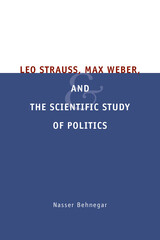
Leo Strauss, Max Weber, and the Scientific Study of Politics
Nasser Behnegar
University of Chicago Press, 2002
Can politics be studied scientifically, and if so, how? Assuming it is impossible to justify values by human reason alone, social science has come to consider an unreflective relativism the only viable basis, not only for its own operations, but for liberal societies more generally. Although the experience of the sixties has made social scientists more sensitive to the importance of values, it has not led to a fundamental reexamination of value relativism, which remains the basis of contemporary social science. Almost three decades after Leo Strauss's death, Nasser Behnegar offers the first sustained exposition of what Strauss was best known for: his radical critique of contemporary social science, and particularly of political science.
Behnegar's impressive book argues that Strauss was not against the scientific study of politics, but he did reject the idea that it could be built upon political science's unexamined assumption of the distinction between facts and values. Max Weber was, for Strauss, the most profound exponent of values relativism in social science, and Behnegar's explication artfully illuminates Strauss's critique of Weber's belief in the ultimate insolubility of all value conflicts.
Strauss's polemic against contemporary political science was meant to make clear the contradiction between its claim of value-free premises and its commitment to democratic principles. As Behnegar ultimately shows, values—the ethical component lacking in a contemporary social science—are essential to Strauss's project of constructing a genuinely scientific study of politics.
Behnegar's impressive book argues that Strauss was not against the scientific study of politics, but he did reject the idea that it could be built upon political science's unexamined assumption of the distinction between facts and values. Max Weber was, for Strauss, the most profound exponent of values relativism in social science, and Behnegar's explication artfully illuminates Strauss's critique of Weber's belief in the ultimate insolubility of all value conflicts.
Strauss's polemic against contemporary political science was meant to make clear the contradiction between its claim of value-free premises and its commitment to democratic principles. As Behnegar ultimately shows, values—the ethical component lacking in a contemporary social science—are essential to Strauss's project of constructing a genuinely scientific study of politics.
[more]
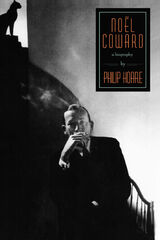
Noel Coward
A Biography
Philip Hoare
University of Chicago Press, 1998
To several generations, actor, playwright, songwriter, and filmmaker, Noël Coward (1899-1973) was the very personification of wit, glamour, and elegance. His biographer, Philip Hoare, given unprecedented access to the private papers and correspondence of Coward family members, compatriots, and numerous lovers, has produced the definitive biography of one of the twentieth century's most celebrated and controversial figures.
"Philip Hoare's careful research and lucid presentation in his Noël Coward: A Biography adds depth to the picture."-New York Times Book Review
"A fascinating, in-depth biography."—Library Journal
"Hoare has profiled vividly and in-depth a complex legend who had a talent for creating and recreating both himself and his works."—Publishers Weekly
"In the thicket of books about the life and work of Coward, Philip Hoare's stands out as the most well-documented and objective."—Los Angeles Times
"[Hoare's] book, like its subject, strives for effortless sophistication, and succeeds."—Newsday
"Hoare's retelling of Coward's story [is] the most vivid, insightful, and fascinating so far."—John Lahr, The New Yorker
"Philip Hoare's careful research and lucid presentation in his Noël Coward: A Biography adds depth to the picture."-New York Times Book Review
"A fascinating, in-depth biography."—Library Journal
"Hoare has profiled vividly and in-depth a complex legend who had a talent for creating and recreating both himself and his works."—Publishers Weekly
"In the thicket of books about the life and work of Coward, Philip Hoare's stands out as the most well-documented and objective."—Los Angeles Times
"[Hoare's] book, like its subject, strives for effortless sophistication, and succeeds."—Newsday
"Hoare's retelling of Coward's story [is] the most vivid, insightful, and fascinating so far."—John Lahr, The New Yorker
[more]
READERS
Browse our collection.
PUBLISHERS
See BiblioVault's publisher services.
STUDENT SERVICES
Files for college accessibility offices.
UChicago Accessibility Resources
home | accessibility | search | about | contact us
BiblioVault ® 2001 - 2025
The University of Chicago Press


